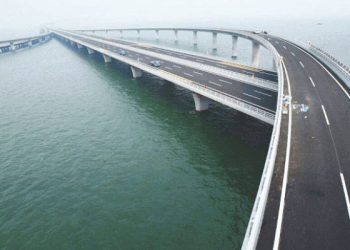In a country where the police are widely disdained for their lack of integrity, inefficiency and impunity, every new police chief assumes office reeling out heart-warming orders that can transform the organisation. Solomon Arase, the newly-confirmed Inspector-General of Police, is not different. At a recent meeting with top police officers, Arase warned the public against corrupting the police by offering them bribes or paying for bail.
“We have a zero tolerance for that: paying to free suspects,” Arase said. “I’m appealing to members of the public, do not corrupt my policemen. It takes two to tango. If they asked you for bribe, and you refused to give, and you have avenues where your grievances can be ventilated, I do not see any reason why you should give them bribe.” On the face of it, this is sensible talk, but it ends there, and the IG is saying the obvious. And, what of millions of Nigerians who don’t have any channel to air their grievances?
Previous IGs had made tougher declarations but nothing changed after the initial bravado. Mere platitudes will not suffice in transforming an organisation brimming with poorly trained, ill-equipped, ill-motivated and irascible personnel, who have scant regard for the law. For Arase to make a lasting impact, he has to systematically follow up on his pronouncement. Without that, he should quickly dispel any thought that his charge carries a force of its own.
Bribery, according to Section 98 of the Criminal Code, attracts a jail term of seven years, both for the giver and the receiver. But how many people have the police prosecuted for offering them bribes? Police chiefs are not appointed to sermonise, but to lay down the rule and lead by it. Arase should start by cleaning up the rotten police force.
With a practical, hands-on approach that punishes offenders – instead of the rush by spokespersons to defend the excesses of police officers – and rewards courage, discipline and commitment, Arase, who was appointed in April in the twilight of the Goodluck Jonathan administration, can leave a lasting legacy in the force.
Many police officers are still impervious to logical thinking. Last week, this newspaper reported that Karamat Eleha, a woman in Lagos, Nigeria’s commercial capital, was arrested, stripped and tortured by police officers, who were trying to extract a confession from her. Her offence: she was accused of stealing an iPad.
While we acknowledge that policing is a high risk job in Nigeria, such atrocities are not justified. Many innocent commercial bus drivers and conductors have been summarily killed at police checkpoints for not giving a bribe of N20. The International Society for Civil Liberties and Rule of Law, an NGO, estimated that over 54,000 Nigerians were killed extra-judicially by the police between 1999 and 2011.
A former IG, Mohammed Abubakar, admitted to extra-judicial killings and illegal detention by the police. In 2009, Amnesty International, an international rights group, in a report entitled: Killing at will, indicted the Nigerian police for extrajudicial killings. In September 2014, Amnesty issued another damning update, which was entitled, Welcome to hell fire: Torture and other ill treatment in Nigeria.
The report said, “Across the country, the scope and severity of torture inflicted on Nigeria’s women, men and children by the authorities supposed to protect them are shocking even to the most hardened human rights observer. The country’s parliament must immediately take this long overdue step and pass a law criminalising torture. There is no excuse for further delay.”
Transparency International, another NGO, in a 2013 survey, said the Nigeria Police ranked fourth highest in the world on its Corruption Perception Index. Last year in Lagos, the police arrested a corporal, Aniyem Chiyem, after a secretly-taped video leaked on social media showed him demanding bribe from three men. In 2011, Victor Emmanuel, 20, who was returning from church, was shot many times in cold blood at a checkpoint in Yenagoa, capital of Bayelsa State, just because he told policemen to stop extorting money from motorists.
But the most infamous killings in Nigeria, known as the “Apo Six,” came in June 2005 when police killed four traders at a checkpoint in Abuja. Two others, who were seen alive at a police station, were later murdered. The police tried to bury them secretly but didn’t succeed. After two days of rioting, the then President, Olusegun Obasanjo, ordered a probe, which discovered the police were lying that the young men were armed robbers who had shot at them first. The government later paid the families a compensation of $20,300, but the main police suspects were released on “exceptional and special bail.”
Arase’s resolve to transform our diminished police force will receive a massive boost when he shows the courage to follow the rule of law and withdraw the high number of police officers that have been posted for illegal guard duties with the affluent, questionable characters and politicians who pay for police protection. While Nigeria has a 370,000-strong force, over 100,000 of them serve as escorts to private individuals, according to Abubakar, leaving about 98 per cent of the 170 million population to make do with 270,000. The United Nations recommends one policeman to 400 citizens.
To show that he is serious about reforming the police, Arase has to stop this aberration. Abubakar, who retired last year, was able to dismantle police checkpoints across the country to a great extent. Arase should build on this, and introduce other far-reaching measures to lift policing in the country out of the morass of inefficiency and corruption.















































